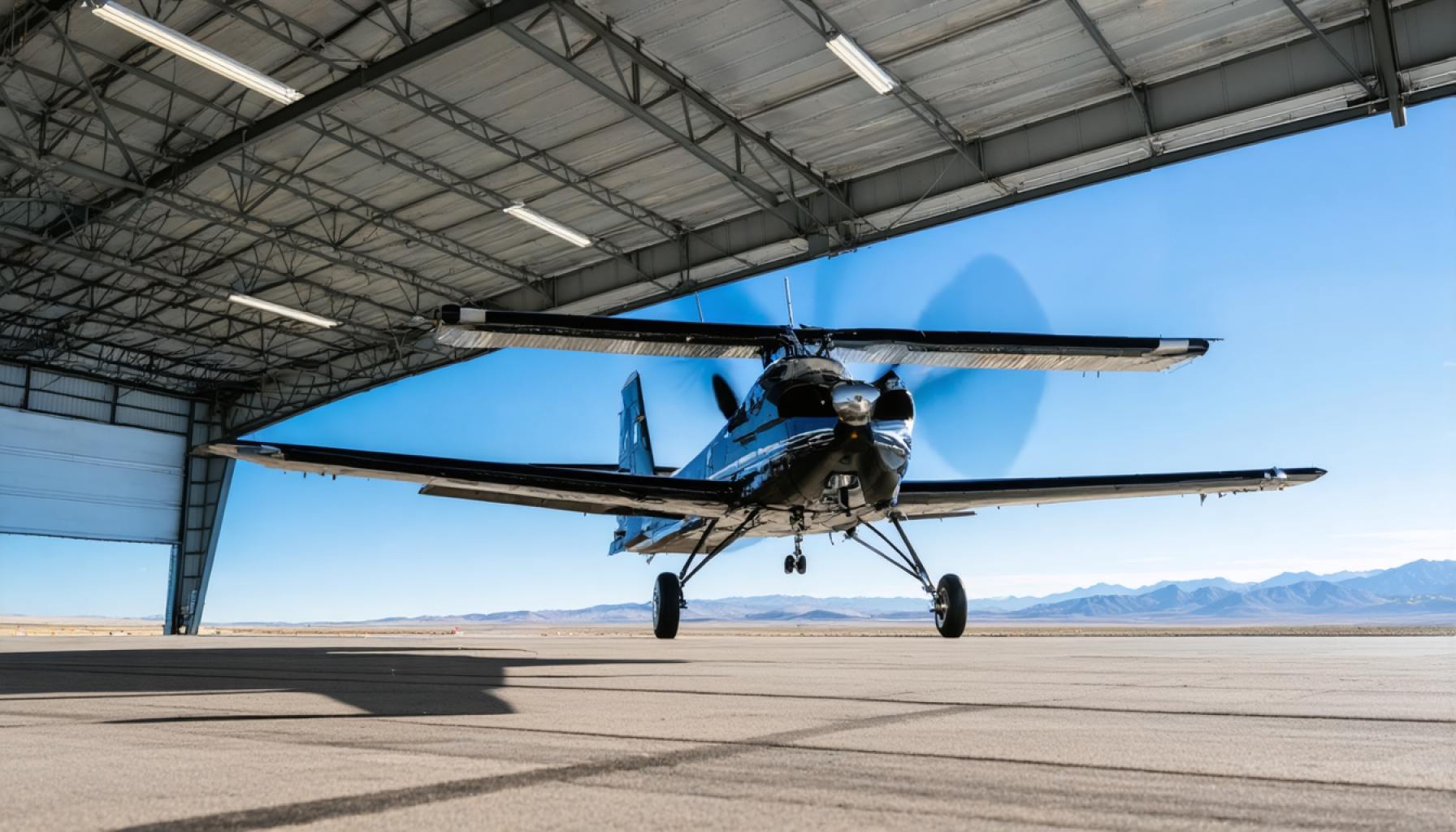Discover the Future of Aviation Technology
This year’s Aerospace Tech Week promises groundbreaking discussions on the role of artificial intelligence (AI), autonomous flight, and cybersecurity in reshaping the aviation industry. Scheduled for April 2-3 at the MOC Event Center Messe in Munich, the event expects a turnout of over 2,000 professionals from various sectors.
With more than 250 exhibitors showcasing innovations across avionics, connectivity, maintenance, and AI, attendees can anticipate a vibrant exchange of ideas. Expert panels will feature over 200 speakers addressing crucial topics including AI-enhanced operations and the push towards sustainable aviation solutions.
The project director of Aerospace Tech Week Europe highlighted the event’s focus on bridging industry giants and emerging startups, aiming to foster discussions about the swift evolution of the sector. Participants will have the chance to network, forging connections that could lead to collaborative advancements.
The agenda includes keynotes and discussions that delve into AI’s influence on flight management, future air mobility frameworks, and the essential role of digital tools in predictive maintenance. Additionally, participants will receive valuable insights into aerospace cybersecurity and supply chain efficiencies.
Aerospace Tech Week Europe 2025 is free for attendees, with tickets readily available online. Media coverage will be provided by Aviation Business News, further underscoring the event’s significance in the industry.
Transformative Trends in the Aerospace Landscape
The advancements in aviation technology presented at events like Aerospace Tech Week will have far-reaching consequences for society and the global economy. As artificial intelligence and autonomous systems become increasingly integrated into aviation, we can anticipate not only a surge in operational efficiencies but also a significant shift in job dynamics. AI-driven systems promise to reduce human error, which is pivotal given that human factors account for approximately 70% of aviation accidents, according to the Federal Aviation Administration (FAA).
These technological developments are reshaping the aviation industry, potentially reducing operational costs and leading to lower airfares for consumers. Beyond economics, the societal impact is profound; enhanced safety measures and efficient air travel can democratize access to global mobility, fostering cultural exchange and international collaboration.
However, the environmental implications of these advancements are equally crucial. With increasing pressure to meet sustainability goals, innovations like electric aircraft and sustainable aviation fuels are becoming focal points in this discourse. The International Air Transport Association (IATA) has set a target to achieve net-zero emissions by 2050, and the discussions at Aerospace Tech Week will likely be pivotal in shaping strategies around this goal.
As we look toward the future, the potential for collaborative innovations between established aerospace giants and nimble startups could redefine the industry landscape. This convergence may usher in new business models, holistic investment strategies, and ultimately, a more resilient global airline network.
Soaring Into the Future: Key Trends in Aviation Technology Unveiled
Discover the Future of Aviation Technology
The aerospace industry is at a pivotal moment in its evolution, driven by advancements in artificial intelligence (AI), autonomous flight, and enhanced cybersecurity measures. As the upcoming Aerospace Tech Week Europe on April 2-3, 2025, approaches, professionals and enthusiasts in the aviation sector are gearing up for an event that promises to reshape the landscape of aviation technology.
Upcoming Trends and Innovations
With over 250 exhibitors expected, showcasing innovations in avionics, connectivity, maintenance, and AI, attendees will witness firsthand the cutting-edge technologies that are set to transform air travel. The event will feature more than 200 speakers, including industry leaders and experts, who will address critical topics such as AI-enhanced operations and the industry’s shift toward sustainable aviation solutions.
Key Features of Aerospace Tech Week Europe 2025
1. Networking Opportunities: Participants will be able to connect with industry giants and emerging startups, facilitating collaborations that could lead to significant advancements in aviation technology.
2. Expert Panels and Discussions: Engaging sessions will cover the influence of AI on flight management systems, future air mobility frameworks, and the use of digital tools for predictive maintenance. This highlights the industry’s focus on improving operational efficiencies through technology.
3. Cybersecurity Insights: As aviation becomes increasingly reliant on digital solutions, discussions around cybersecurity will be crucial. Attendees will gain deeper insights into safeguarding the aerospace supply chain against evolving threats.
4. Sustainability Focus: The event will spotlight sustainability advancements, aiming to educate participants on the latest practices and technologies to minimize the ecological impact of the aviation industry.
5. Free Access for Attendees: Aerospace Tech Week Europe 2025 is free for those interested, making it accessible for a broad audience passionate about aviation technology. Tickets can be obtained easily online.
Market Analysis and Predictions
As the aviation sector embraces digital transformation, market analysts predict a surge in investments aimed at enhancing automation, AI integration, and sustainable technologies. The increasing threats to cybersecurity are also expected to drive demand for robust security solutions in aerospace.
Pros and Cons of Advancements in Aviation
Pros:
– Enhanced operational efficiency through AI and automation.
– Greater focus on sustainability reducing environmental footprint.
– Emerging startups potentially bringing fresh innovations to the industry.
Cons:
– High initial investment required for adopting new technologies.
– Ongoing cybersecurity risks necessitating constant vigilance.
– Potential job displacement due to automation.
Insights and Conclusion
The Aerospace Tech Week Europe 2025 presents a unique opportunity for professionals in the aviation sector to engage with the latest technological trends. As the industry navigates through challenges and embraces innovations, the dialogue initiated at this event could set the stage for the future of aviation.
For further updates and insights, you can explore more at Aviation Business News.


